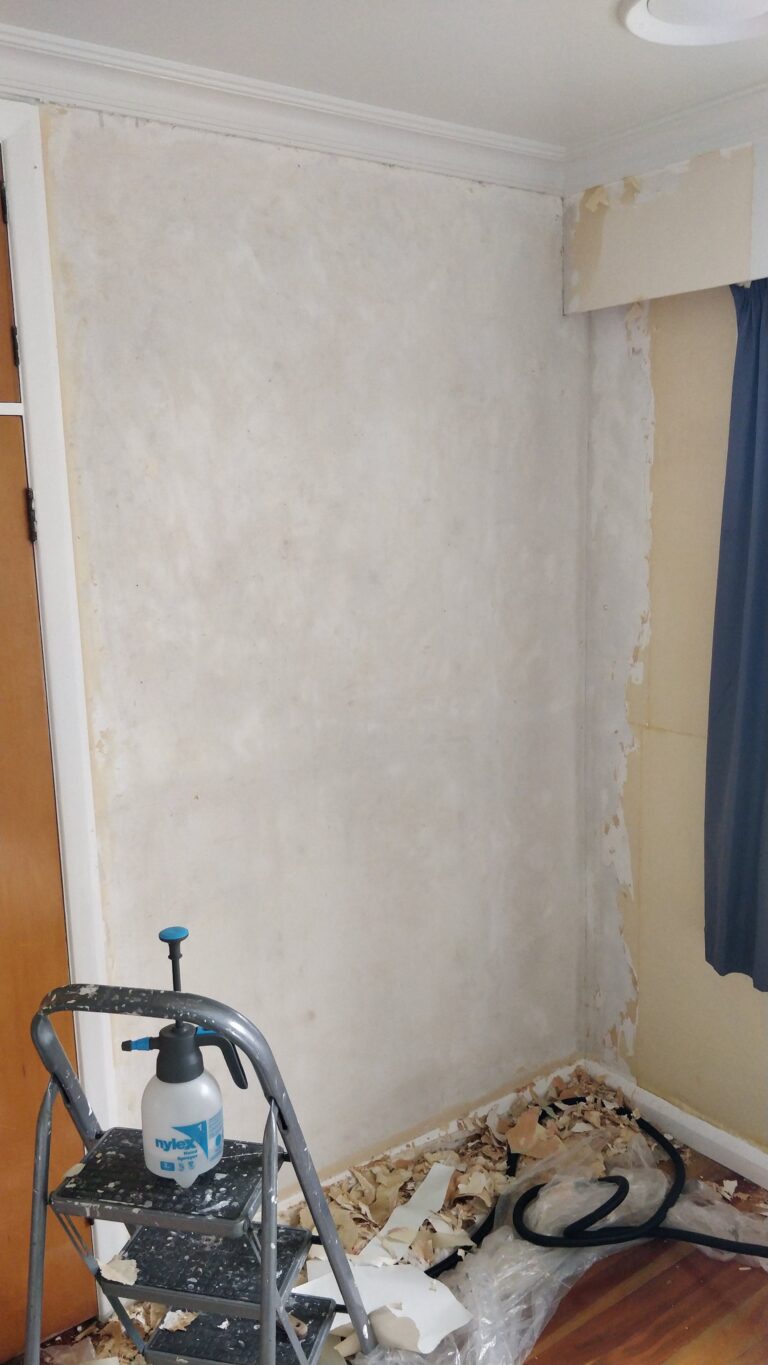Can We Have Separate Electric Meter for the Second Unit? Essential Guide
Yes, you can have a separate electric meter for a second unit. This can make managing utility bills easier.
Having a second electric meter is often essential for properties with multiple units. It ensures each unit is billed separately for electricity usage. This setup is common in duplexes, rental properties, or homes with an in-law suite. Separate meters can help avoid disputes over utility costs and ensure fair billing.
But the process involves specific steps and may require permission from your utility company. In this blog, we will explore the benefits, steps, and considerations for installing a separate electric meter. Understanding these aspects will help you decide if this option is right for your property.

Credit: www.greenridge.com
Introduction To Separate Electric Meters
Setting up a second unit on your property? You might wonder about having a separate electric meter. Separate electric meters can be a great solution for managing electricity usage. They ensure clear and fair billing for each unit. Let’s explore why you might need one and the benefits it offers.
Purpose Of Separate Meters
Why install separate meters? The main reason is to measure the electricity used by each unit. This helps in splitting the bill accurately. It’s perfect for duplexes or rental properties. Each tenant pays only for their usage.
Separate meters also simplify property management. They provide clear records of consumption. This avoids disputes between tenants and landlords. They offer transparency. They ensure everyone pays their fair share.
Benefits Of Individual Meters
There are many benefits to having individual meters. First, it promotes energy conservation. When tenants pay their own bills, they are more mindful of their usage. This can lead to lower overall consumption.
Individual meters can also increase property value. Potential buyers or renters see the advantage of clear billing. It makes the property more attractive. It adds convenience and fairness.
Another benefit is easier maintenance. Issues can be traced to the correct unit. This makes repairs quicker and more efficient. It saves time and reduces hassle for property owners.
Understanding Electrical Units
Installing a separate electric meter for a second unit can help track energy usage more accurately. It also simplifies billing and reduces disputes. Ideal for multi-family homes or rental properties.
Electricity is a vital part of our daily lives. It’s essential to understand how we measure its usage. This knowledge helps in managing and saving on electricity bills. One key term to know is the “electrical unit.”What Constitutes A Unit?
An electrical unit is the amount of electricity consumed. It’s measured in kilowatt-hours (kWh). One kilowatt-hour means using 1,000 watts of power for one hour. For example, using a 100-watt light bulb for 10 hours equals one unit.Significance In Billing
Electricity bills are based on units consumed. More units mean higher bills. Understanding units helps in reducing usage. This knowledge is crucial, especially if you plan to have a separate electric meter for another unit. Managing consumption can lead to significant savings. “`Legal Considerations
Installing a separate electric meter for a second unit involves several legal considerations. Understanding these factors ensures compliance and avoids potential issues. Let’s explore the key legal aspects you need to know.
Local Regulations
Local regulations vary by city and state. Some areas may have strict rules about installing separate electric meters. Check with your local government office. They can provide specific guidelines. Ignoring these rules can lead to fines.
Permits And Approvals
Getting a separate electric meter often requires permits. You may need approval from local authorities. This process ensures your installation meets safety standards. Contact your local building department. They will guide you through the permit process. This step is essential for compliance.

Credit: www.dispensing.com
Installation Process
Installing a separate electric meter for a second unit might seem daunting. Yet, with the right steps, it can be straightforward. This guide will help you understand the process better.
Steps To Install
First, determine the power needs of the second unit. This involves calculating the expected power usage. Make sure to consider all appliances and devices.
Second, contact your local electricity provider. They will guide you on the specific requirements. You might need permits or approvals before proceeding.
Third, purchase the necessary equipment. This includes the electric meter, circuit breakers, and wiring. Ensure all materials meet local safety standards.
Fourth, prepare the installation site. This involves installing a meter box and ensuring proper grounding. Safety is crucial at this stage.
Fifth, install the new meter. Connect it to the main power supply. Then, run wiring from the meter to the second unit. Ensure all connections are secure.
Finally, test the installation. Ensure the meter reads correctly and power flows without issues. This step ensures everything works as intended.
Hiring A Professional
Consider hiring a licensed electrician. They bring expertise and ensure the installation meets all codes.
Professionals handle permits and inspections. This saves you time and ensures compliance with local regulations.
They also ensure safety. Electrical work can be hazardous, so expert handling is key. A professional ensures all connections are secure and safe.
Hiring a professional might cost more. But it offers peace of mind and ensures a smooth installation process.
Cost Implications
Understanding the cost implications of installing a separate electric meter for a second unit is crucial. This decision can impact both your initial expenditure and long-term financial outlook. Let’s break down the costs involved.
Initial Setup Costs
Installing a separate electric meter involves upfront expenses. First, you need to hire a licensed electrician. Their fees will vary based on the job’s complexity. You also need to purchase the meter itself. The price of a new meter can range from $100 to $500. Additionally, there might be costs for permits and inspections. These can add a few hundred dollars more.
Electrical panel upgrades could also be necessary. Older panels might not support an additional meter. This upgrade can cost anywhere from $1,000 to $3,000. The total initial setup cost can be a significant investment. But it ensures accurate billing for each unit.
Long-term Savings
Separate meters can lead to long-term savings. Each unit will have its own electric bill. This encourages occupants to use energy more efficiently. They will be mindful of their consumption. This can reduce overall energy costs. If you rent out the second unit, tenants pay for their own usage.
This setup simplifies billing and avoids disputes over shared bills. Also, separate meters can increase the property’s value. Potential buyers see this as a benefit. It makes the property more attractive to investors. Over time, the savings and benefits can outweigh the initial costs.
Technical Requirements
Having a separate electric meter for your second unit might seem like a daunting task, but it is quite achievable if you understand the technical requirements. In this section, we will delve into what is needed to set up a separate electric meter and how to ensure compatibility with your existing setup.
Equipment Needed
Before you begin, it’s important to gather all the necessary equipment. Here’s a simple list to get you started:
- Electric Meter: A new meter specifically for the second unit.
- Meter Base: The mounting assembly for the new meter.
- Breaker Panel: To manage and distribute the electricity safely.
- Wiring: Proper gauge wire to connect everything.
- Grounding Equipment: To ensure safety standards are met.
These items are crucial, and having them beforehand will save you time and hassle.
Compatibility Check
Compatibility is key when adding a new electric meter. Here are a few checks you should perform:
- Consult with Your Utility Company: Ensure they support a separate meter installation. They can also provide specific guidelines.
- Inspect Your Existing Electrical System: Make sure it can handle the additional load. An electrician can help with this.
- Check Local Codes and Regulations: Compliance is mandatory. You might need permits or inspections.
Skipping these checks can result in costly mistakes or even legal issues.
In conclusion, setting up a separate electric meter for your second unit involves a few technical requirements, but with proper planning and the right equipment, it can be a smooth process. Remember, always consult professionals when in doubt to ensure safety and compliance.
Maintaining Separate Meters
Having a separate electric meter for the second unit of your property can be a wise choice. Not only does it provide a clear distinction between the energy consumption of different units, but it also promotes responsible usage. However, maintaining these meters is crucial to ensure their accuracy and functionality. Let’s dive into the basics of keeping these meters in top shape.
Regular Maintenance
Regular maintenance is key to the longevity and reliability of your electric meters. Just like any other appliance, they require periodic check-ups to ensure they’re functioning correctly. Here are some tips to keep in mind:
- Visual Inspection: Regularly check the meters for any visible damage or wear and tear.
- Cleanliness: Ensure the meters are clean and free from dust or debris that can affect their performance.
- Professional Servicing: Schedule a professional to service the meters annually. They can spot potential issues that you might miss.
Troubleshooting Issues
Despite regular maintenance, issues can still arise. Knowing how to troubleshoot common problems can save you time and money. Here’s a simple guide:
- No Power: If the meter shows no power, check the main circuit breaker. If it’s tripped, reset it.
- Inaccurate Readings: If you suspect inaccurate readings, compare the meter reading with your electricity bill. If there’s a significant difference, call a professional.
- Unusual Noises: If the meter is making strange noises, it could be a sign of internal issues. Turn off the power and contact a technician immediately.
Maintaining separate electric meters may seem daunting at first, but with regular check-ups and a bit of troubleshooting knowledge, it’s quite manageable. Remember, a well-maintained meter not only ensures accurate billing but also helps in identifying energy wastage, leading to cost savings in the long run. So, roll up your sleeves and give those meters the attention they deserve!

Credit: www.tiktok.com
Case Studies
Exploring the installation of separate electric meters can be insightful. Real-life examples help understand its practicality. In this section, we will look at various case studies. These examples range from residential to commercial settings.
Residential Examples
John’s family added a second unit for their growing needs. They wanted a separate electric meter for the new unit. This made it easy to track and manage electricity usage. The installation was quick and hassle-free. The new meter helped in budgeting and energy efficiency.
Susan’s guest house had frequent visitors. She decided to install a separate electric meter. This allowed her to bill guests accurately. The meter also helped in monitoring energy consumption. It led to reduced waste and better management.
Commercial Examples
A local bakery expanded by adding a new kitchen. They installed a separate electric meter for the new space. This helped in tracking the exact energy usage of each kitchen. The bakery managed costs more effectively. The meter also aided in maintenance schedules.
A small office building housed multiple businesses. Each business had different energy needs. Separate electric meters were installed for each unit. This setup allowed businesses to pay for their own usage. It promoted fair billing and reduced disputes.
Frequently Asked Questions
Can I Add A Second Electric Meter To My House?
Yes, you can add a second electric meter to your house. You need to get approval from your utility company and ensure proper installation by a licensed electrician.
How Much Does It Cost To Add A Second Electric Meter?
Adding a second electric meter typically costs between $500 and $2,500. The price depends on location and complexity. Always get quotes from licensed electricians.
Why Would A House Have Two Electrical Meters?
A house may have two electrical meters to separate billing for different units, such as a rental space or an extension.
What Is A Dual Electric Meter?
A dual electric meter measures electricity usage separately for peak and off-peak hours. It helps manage energy consumption and costs.
Conclusion
Considering a separate electric meter for a second unit is wise. It offers clear billing. It prevents disputes over electricity use. Separate meters can be installed easily by professionals. They help manage energy usage more efficiently. Always consult local regulations before proceeding.
This ensures compliance and avoids fines. Separate meters offer peace of mind and clarity. Make informed decisions for better living.

My name is Maria, A professional merge game player with years of experience mastering games like Merge Dragons, Merge Gardens, Merge Mansion, and more. My passion for uncovering the best strategies, solving tricky puzzles, and discovering hidden secrets led her to create MergeGameplay.com.





